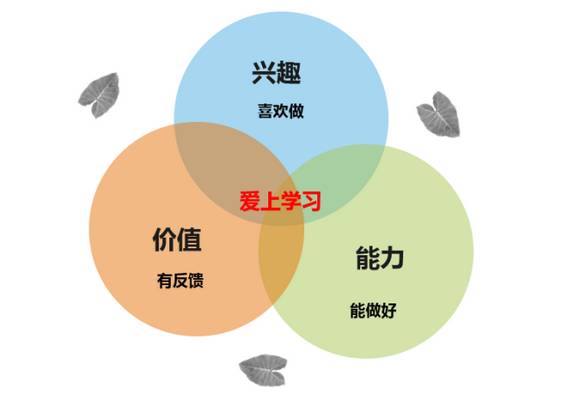一、介词的重要用法:
介词是一种虚词,不克不及自力利用。介词以后一般着名词或代词(宾格)或至关于名词的其他词类、短语或从句作它的宾语,即组成介词短语。有些介词是由两个以上的词组成的短语介词,如:out of(从…中出来), because of(由于), away from(间隔…), on top of(在…顶上), ever since(自从…), next to(在…隔邻), according to(按照…), in front of(在…火线)等。
二、介词的分类表:(见下表)
地址(位置、范畴)介词:above在…前, about在…四周, across在…对面, after在…后面, against倚着…, along在…近旁, among在…中心, around在…四周, round在….四周, at在…处, before在…前, behind在…后, below低于…, beside在…阁下, between在…之间, by在…旁, down在…下面, from来自…, in在…内里, inside在…内里, near挨近…, of在…当中, on在…上面, out of在…以外, outside在….外面, over在….上方, under在…下方, up在…上面, on top of在…顶部, in front of在…前, close to挨近…, in the middle of在…的中心, at the end of在…的结尾,等等。
标的目的(方针趋势)介词:across横越…, against匹敌…, along沿着…, around绕着…, round环抱…, at朝着…, behind向…后面, etween…and…从…到…,by途经/经由过程…, down向…下, for向…, from从/离…, in进入…, into进入…, inside到…内里, near靠近…, off离开/除…, on向…上, out of向…外, outside向….外, over跨过…, past颠末/跨越…, through穿过…, to向/朝…, towards朝着…, on to到…上面, onto到…上面, up向…上, away from阔别…
时候介词:about约莫…, after在…今后, at在… (时刻), before在…之前, by到…为止, during在…时代, for有…(之久), from从…(时)起, in在(上/下战书);在(多久)今后, on在(某日), past过了…(时), since自从…(至今), through 贯串…(时代), till直到…时, until直到…时, to到(下一时刻), ever since从当时起至今,at the beginning of在…起头时 ,at the end of在…末 , in the middle of在…傍边 ,at the time of在…时
方法介词:as作为/看成…, by用/由/乘坐/被…, in用…(说话), like与…同样, on骑(车)/徒(步),经由过程(收音机/电视机), over经由过程(收音机), through经由过程…, with用(质料),用(手/脚/耳/眼), without没有…
触及介词:about关于…, except除…, besides除…还… for对付/就…而言, in在…(方面), of…的,有关…, on关于/有关…, to对…而言, towards针对…, with就…而言
其它介词:
【目标介词】 for为了…, from避免…, to为了…
【缘由介词】 for由于…, with因为…, because of由于…
【比力介词】 as与…同样,like象…同样,than比…,to与…比拟, unlike与…分歧
【陪伴/状况介词】 against和…一块儿(角逐),at在(上班/苏息/上学/家,etc.),in穿戴…(衣服/色彩),into酿成…,on在(值日), with与…一块儿,有/带着/长着…, without没有/无/不与…一块儿
三、介词短语的句法感化:
介词短语至关于一个形容词或副词,可用作状语、定语和表语。如:The man came .(状)(那小我走下楼来)/The woman is from the countryside.(定)(头上戴花的主妇来自乡间)/The teacher is now with the pupils.(表)(教员如今和学生在一块儿)
四、介词短语在句子中的位置:
介词短语做状语时,若是暗示时候/地址,可以放在句首或句尾,若是暗示标的目的/方法/陪伴/触及/缘由/目标/比力,一般放在句尾; 介词短语作表语时放在结合动词以后;介词短语作定语时,只能放在被润饰的名词以后。如:He wanted to find a good jobin Shanghai the next year.(状语)(他想来年在上海找份好事情)/ They searched the roomfor the thief.(他们在房间里搜刮小偷) / The letters arefor you.(表语)(信是给你的)/ Have you seen a cat with a black head and four white legs?(定语)(你瞥见一只黑头白腿的猫了吗?)
五、首要注释:
⑴this / that / these / those / last / next / a / every / each等词组成的时候短语,前面不消任何介词。如:Every yeartravellers from abroad come to visit Pingyao.(每一年都有外洋的旅客来旅游平窑镇)/ He had a bad cold that week.(阿谁礼拜他患重伤风)
⑵for有时用来引出动词不定式的逻辑主语,常翻译成“对付…而言”。如:It’s too hard for meto finish the work in only one hour.(让我在戋戋一个小时内完成这项事情太难了)/ The house is big enough for 10 men to live in.(屋子够大的可以容10小我住)
⑶of有时用来暗示后面的人物正好是前面的表语的逻辑主语。如:It’s very nice/kind of youto do so.(你这么做真是太好了)
⑷介词有时会与它的宾语分手,并且宾语前置。
① 当宾语是疑难词时。Whoare you talking about?(你们在评论辩论谁?)
② 宾语在从句中当毗连词时。He has a younger brother whohe must take good care of.(他有 一个必要他赐顾帮衬的小弟。) / Do you knowwho our teacher is talking with over there?(你晓得咱们的教员在何处和甚么人谈话吗?)
③ 动词不定式作定语且该动词为不及物动词,后面有介词。I finally found a chair to sit on.(我 终极找到了一张椅子坐。)
(5) 记着一些固定词组:arrive at/in(达到…),on foot(步行),not…at all(底子不),to the north of(在…以北),in the east of(在…的东部),in the night(在夜间),at night(在晚上),be afraid of(惧怕…),be 
full of(布满/ 装满….),be filled with(布满/ 装满….),be good/bad for(对…有利/有害),be made of(由…做成),be made from(由…制造),play with(顽耍……),look out of(朝…外面看),at the end of(在…末梢/竣事时),by the end of(不迟于…/到…末为止),with the help of或with one’s help(在…的帮忙下),look after(顾问…),look for(寻觅…),on a bike(=by bike)骑车,help sb. with(帮或人做…),get on (well) with(与或人相处[和谐]),等等。
六、某些介词的用法辨析:
⑴ 时候或地址介词in、on、at的用法区分:暗示时候时, in暗示在一段时候里(在未来时句子中则暗示在一段时候以后), on暗示在详细的某一天或某天的上下战书等, at暗示在某个时刻或刹时; 暗示地址时, in暗示在某个范畴以内, on暗示在某个平面上或与一个面相接触,at则暗示在某个详细的场合或地址。如:He was born on the morning of May 10th.(他诞生于蒲月旬日的清晨)/ I usually get up at 7:00in the morning.(我凡是在早上的七点钟起床) / His glasses are right on his nose.(他的眼镜就架在他的鼻子上)/ He is at the cinemaat the moment.(现在他正在片子院)
⑵ after与in暗示时候的用法区分:“after+(详细时刻/从句)”暗示“在…时刻以后”经常使用于一般时态;“in+(一段时候)”暗示“在(多久)以后”,经常使用于未来时态。如:He said that he would be here 
after 6:00.(他说他六点钟以后会来这儿)/ My father is coming back from England in about a month.(我父亲约莫一个月今后从英国回来)
⑶ since与for暗示时候的用法区分:“since+(详细时刻/that-从句)”暗示“自从…起一向到如今”,“for+(一段斶间)”暗示“统共有…之久”,都经常使用于完成时态;如:Uncle Li has worked in this factory since 1970.(李叔叔自从1970年起就在这家工场事情了)/ Uncle Li has worked in this factory for over 30 years. (李叔叔在这家工场已事情了30多年)
⑷ by、in与with暗示方法的用法区分:均可以暗示“东西、手腕”,可是by重要暗示“乘坐”某个交通东西或“以……方法”,在被动句中可以暗示动作的履行者;in暗示“利用”某种说话/文字,with暗示“利用”某个详细的东西、手腕。如:We see with our eyes and walk with our feet.(咱们用眼睛看工具,用双脚走路)/ Please write that article(文章)in English.(请你用英语写那篇文章)/ Let’s go to the zoo by taxi.(咱们打的去动物园吧。)/ It was written by Lao She.(那是老舍写的)
⑸ about与on的用法区分:均可以暗示“有关…”,可是about的意义比力广,而on重要暗示“有关…(专题/课程)”。如:Tom is going to give a talk on the history of America.(汤姆要作一个美国汗青的陈述)/ They are very excited talking about the coming field trip.(他们兴趣勃勃地评论辩论着行将来到的野外游览)
⑹ through与across、over的用法区分: through指“穿过…(门洞/人群/树林)”; across和over可以指“超过…(街道/河道)”,可交换,可是暗示“翻过…”时只能用over. 如:Just then a rat(鼠)ran across the road.(就在当时一只老鼠跑过路面)/ There is a bridge across/over the river.(河上有座桥)/ They climbed over the mountainand arrived there ahead of time.(他们翻过大山提早达到了那边)/ The visitors went through a big gate into another park.(观光者们穿过一个大门来到另外一个公园)
(7)as与like的区分:两个词都暗示“像……”,可是as译为“作为……”,暗示的是职业、职务、感化等究竟,而like译为“像……同样”,暗示外表,不是究竟。如:Let me speak to you asa father.(我以父亲的身份和你发言。)(措辞者是听者的父亲) / Let me speak to you like a father.(让我像一名父亲同样和你发言)(措辞者不是听者的父亲)
(8)at the end of、by the end of、to the end、in the end的用法区分:at the end of…既可以暗示时候也能够暗示地址,译为“在…末;在…绝顶”,常与曩昔时连用;by the end of…只能暗示时候,译为“在…前;到…为止”,经常使用于曩昔完成时;in the end与at last根基等义,暗示“终究、最后”,通经常使用于曩昔时;to the end译为“到…的终点为止”,前面常常有暗示@活%TKqy1%动或持%t4551%续@性的动词。如:By the end of last term we had learned 16 units of Book III.(到上学期期末咱们已进修了第三册16个单位)/ At the end of the road you can find a big white house with brown windows.(在路的绝顶你能找到一幢有棕色窗户的白屋子)/ They left for Beijing at the end of last week.(上周末他们出发去了北京)/ In the end he succeeded in the final exams.(他终极在期末测验中考合格了)/ We should go on with the work to the end.(咱们应当把事情干到底)/ Follow this road to the end and you will see a post office.(沿这条路走到底就可以瞥见一家邮电局)
(9)for a moment、for the moment、in a moment、at the moment的区分:for a moment“一下子、半晌”(=for a while),常与延续性动词连用;for the moment“临时、今朝”,经常使用于如今时;in a moment“一下子、当即、顿时”(=soon;in a few minutes),一般用于未来时;at the moment“现在,眼下”(=now),用于如今举行时。如:Please wait for a moment.(请稍等)/ Let’s leave things as they are for the moment.(临时就保持近况吧!) / I’ll come back in a moment.(我过会儿回来)/ I am very busy at the moment.(眼下我很忙)
(10)but的问题:用介词but引出另外一个动词时,要注重:若是前面有do,后面就用真相动词,前面没有do时,后面的动词要加to。如:I could donothing but wait.(我甚么也做不了只能等) / They had no choice(选择) but to fight.(他们没有选择只有战役)
(11)in front of与in the front of: in front of“在…的前面”, 与in the front of“在…的前部”。如:A car was parking in front of the hall.(大厅跟前停着一辆汽车)/ In the front of the hall stood a big desk.(大厅前部立着一个大讲台)
(12)except与besides的区分:except“除”,暗示@解%VU9Ea%除掉或%Q8798%人@物,即不包括;而besides“除”则暗示包括,即“不但……又……”。如:Everyone went to the Palace Museumexcept Tom.(除Tom,大师都去了故宫博物院)(Tom没有去故宫)/Besides Chinesehe also studied many other subjects.(除汉语以外,他还学其他很多作业)(“汉语”也是他学的作业之一)



